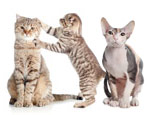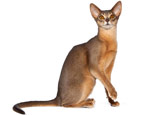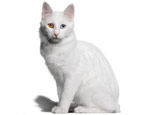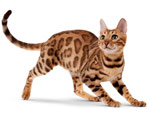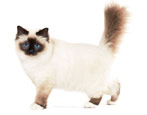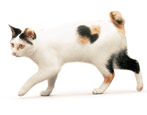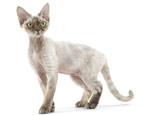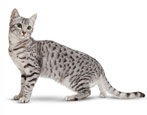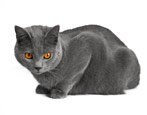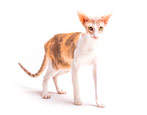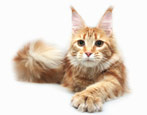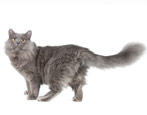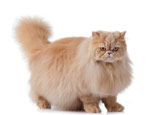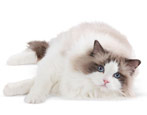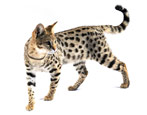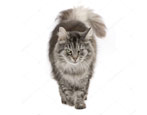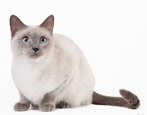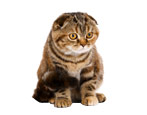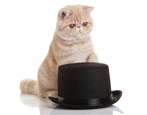Cats and their owners: do cats love their owners and can they forget them?
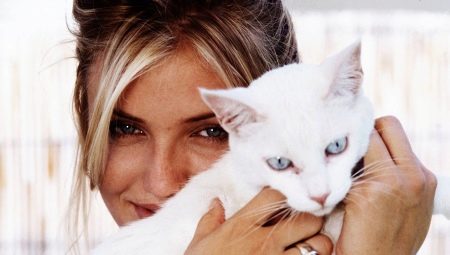
Many jokes and anecdotes are formed when comparing the worldview of a cat and a dog. They say that the dog is always ready to rush to the rescue of the owner and cannot live a day without the attention of a person, then the behavior of the cat says, allegedly, the opposite. Let's try to figure it out.
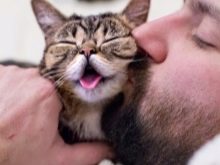
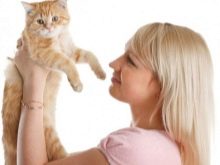

Do cats miss their owners?
Coming home from work, some owners see a meowing cat, which stretches out for joy on the floor, substituting its belly for affection. British scientists conducted a series of experiments and decided that cats miss not so much their owners as from idleness and monotony of the environment and cite as an example that when several pets are kept in a house, they often do not rush headlong to meet the owner in the hallway, because in his absence was carried away by games with each other.
Scientists believe that a cat's violent delight from the arrival of the owner can be caused by anything: hunger, an uncleaned tray, but not loyalty to the owner. Not only that, British scientists have decided that the cat sometimes even likes to be alone, since at that moment she feels like the owner of the apartment and, allegedly, begins to do whatever she pleases. Each animal feels comfortable and safe, and for a cat, safety is its home. Therefore, the scientists decided, she does not suffer in the absence of owners, unlike a dog, for which safety is connected precisely with the owner. That is why they recommend people who are often not at home to have a cat, not a dog, so that they can leave the apartment again without remorse.
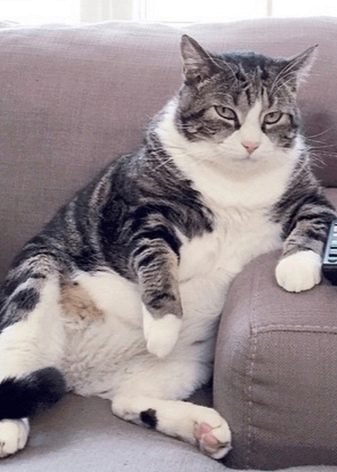
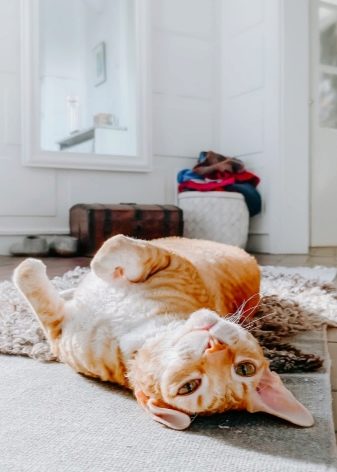
However, this is a very controversial opinion.It is not known in what conditions scientists conducted these experiments, and how objective these results are.
Felines, on the other hand, have tons of stories to tell about their loyalty.
It is not uncommon for the cat's beloved mistress to leave for a couple of weeks and leave the animal not with strangers, but with people who are well-known to the cat, who constantly live with her in the apartment and adore the animal. However, for some reason the cat lacked exactly its beloved mistress! Despite constant attention, affection, constant feeding, the poor animal literally melted before our eyes, she constantly lay down on the rug by the front door and waited endlessly sadly, listening to the slightest sounds: now she will enter ... At this moment, the cat looked more like a devoted dog waiting your beloved master. The cat constantly refused food, almost did not go to the toilet and was in a strange lethargic state. For all the time, no one ever heard her purring ... Sometimes the cat lay down sadly on the things of the beloved mistress, which retained her scent. In the end, the animal even literally fell ill from melancholy and it is not known how it would have ended if the owner had not returned soon.
Another time, the cat had already endured the departure of its beloved mistress a little easier, but at the same time was constantly sleeping, crawling right under her blanket, which retained her scent. This time the poor animal did not fall ill, but was constantly in a sleepy state of a strange numbness, as in "suspended animation." It seemed that all her life processes and metabolism had stopped ... But if anyone had seen the joy of the animal when the mistress returned! The cat immediately resumed all processes, the appetite sharply manifested itself, she began to run, play, go to the tray and purr endlessly! Looking at her, it was difficult to imagine a more devoted and loving being ...
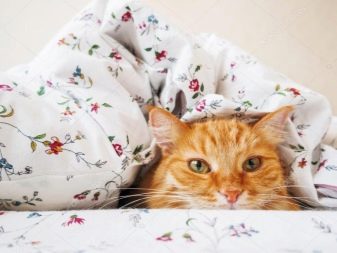
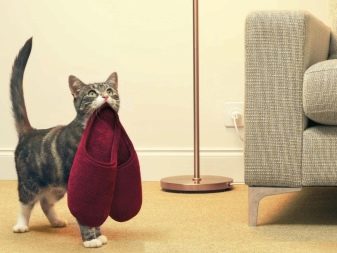
How do cats express love?
In general, cats are rather headstrong creatures. It is believed that love in them can arise only after complete trust in a person. This dog can lick the hand of the beating owner, but cats have a completely opposite character, it is believed that they can be vindictive, and their love must be earned. Therefore, it is worth observing the behavior of the cat.
- For example, cat poses can tell a lot. If the cat is sleeping, stretched out on its back and its stomach up, then at the moment it feels safe. For a wild feline, this position is not typical.
- A gift from a pet can also be considered an expression of love. Sometimes domestic cats living in the village bring prey to the owner in the form of a mouse or a bird. This gesture should also be taken as animal love.
- Another way of a loving cat is to "butt" its owner with its head. This is how the pet recognizes the person and demonstrates its affection for him. The same can be said about a cat constantly rubbing against its legs - this behavior is characteristic of an animal that wants to be as close to the owner as possible and at the same time "marks" its owner with its scent.
- A cat also expresses its strong affection for a person by "massage" to its owner. In fact, this is her little secret with which she marks her owner. There are glands on the pads of her paws that secrete secretions that are imperceptible to the human sense of smell. The cat, on the other hand, knows that it marked its beloved owner with this smell.
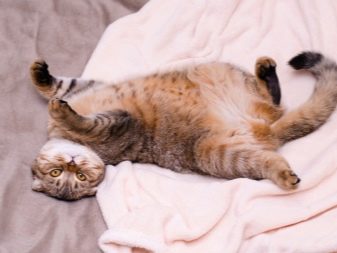
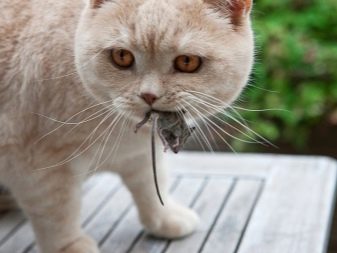
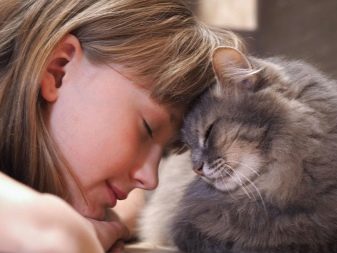
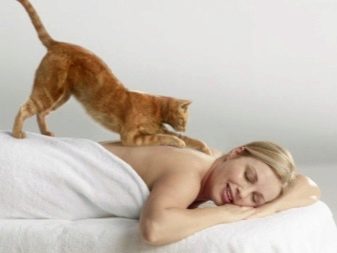
Do animals treat people?
According to psychologists, people who keep cats are more open. It is believed that these animals absorb all fears and contribute to peace of mind, give a person confidence in the future. All this is reflected in a positive way on the emotional background of a person, so he is more cheerful, open, easy to communicate.
In addition, communication with cats and cats of different breeds improves immunity, relieves stress, relieves depression, prevents heart attack, lowers blood pressure. These pets have a good effect on the general condition of the body and longevity. Cats have a beneficial effect not only with their energy, but also with their physical characteristics.... For example, with their soft fur, they can warm patients suffering from arthritis, osteochondrosis, prostatitis and sciatica.
The cat's purr has no less effect on humans. It is believed that the ultrasound of a purring cat normalizes the heart rate, calms the nervous system, and relieves depression. It is no coincidence that cats are often called "antidepressants" on the net!
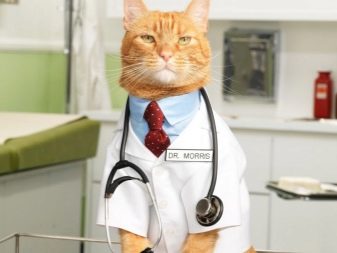
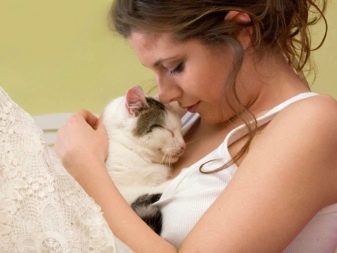
In the west, these animals are used in the treatment of people suffering from drug and alcohol addiction. The method of rehabilitation with the help of representatives of felines has even received a special name in medicine - feline therapy. This method is used in many developed countries in the treatment of various ailments.
Another hypothesis concerns the co-sleeping of the cat and the owner. It is believed that at night a person hugging a cat gets rid of stress and neurosis. Until 5 am, the pet can have a positive effect on the treatment of asthma, bronchitis, pneumonia. During the day, sleeping together in bed can help reduce the symptoms of heart disease. If a cat sleeps next to its owner's head, then, perhaps, in this way she is trying to cure him of a migraine or headache.
There are also beliefs about the relationship between the therapeutic effect and the color of the animal. For example, black cats are the most "healthy" ones. They have powerful energies and can help treat many diseases. Cats with a white color are able to charge their owner with energy, in England they are even sold in pharmacies. Ginger pets improve your mood, set you up for a good day, and charge you with positive. Ash-haired animals calm the nervous system, relieve depression, and help fight anxiety.

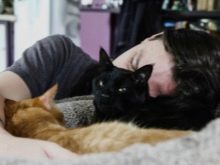

Do pets quickly forget their owner?
If the owners are forced to put the cat in good hands, then you should know that at first the animal will experience stress, it can sit under the bed for several days, not eating, not going to the toilet.
Some cats are very strongly attached to their home and cannot adapt to new conditions for a long time if they move with their family, especially older animals. And the older they are, the more difficult it is to endure a change of scenery or separation from the owner.
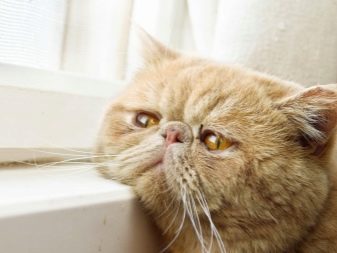
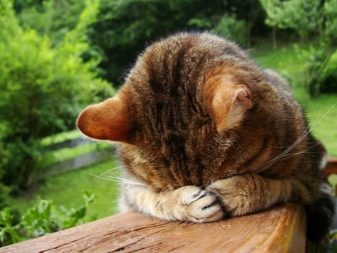
At first, the cat will remember the owner, especially while it smells him, but gradually the image will be erased from her memory, especially if she is well looked after in the new family. How long a pet can remember the previous owner is unknown, it all depends on the age of the animal, its character and the time it spent in the previous family.
If a cat, which is accustomed to a new home and a new owner, sees the old owner, then, most likely, it will not recognize him (cats do not remember faces well, they know how to distinguish people only thanks to the organs of smell and touch), but his smell and voice will remind her that once this man gave her pleasure. That is, the former owner, who came to visit his cat, will associate her with something pleasant. The same applies to cases when the animal is attached to another family for several years, and then comes back. A cat, once again in the old house, quickly remembers the whole situation and gets used to the room much more easily.
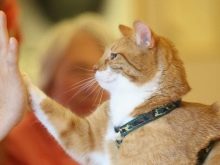

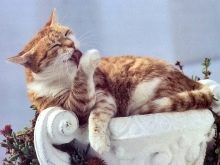
For information on whether cats love their owners, see the next video.
